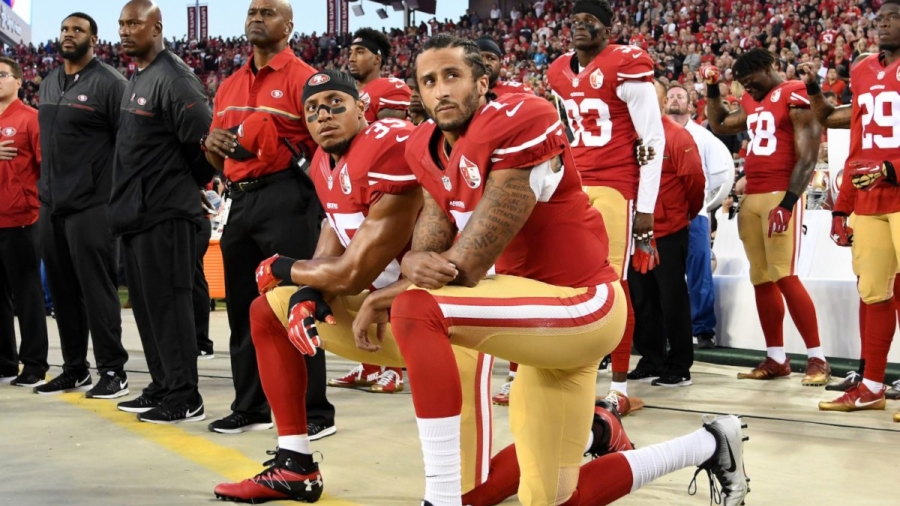The NFL paid under $10 million to Colin Kaepernick and Eric Reid, the NFL players who claimed the league’s teams colluded to keep them off the field after they started kneeling during the national anthem.
The amount was not reported publicly but people briefed on the deal, which was widely reported on, spoke to the Wall Street Journal. They didn’t reveal the exact amount but said it was less than $10 million.
“The confidential agreement was widely celebrated as a victory for the players. But the settlement is far less than the tens of millions of dollars Mr. Kaepernick, especially, would have likely been owed if his grievance had prevailed. It couldn’t be determined how the payment is divided between the players and how much they will net after legal fees,” the Journal noted.
An NFL spokesman declined to comment and an attorney for Kaepernick and Reid said they’d respect the deal’s confidentiality agreement.
Kaepernick and Reid filed separate grievances, the former in 2017 and the latter in 2018. If they had won those grievances, they would be entitled to damages worth up to three times what an arbitrator determined they lost as a result of the alleged collusion.
For instance, if Kaepernick’s market value was judged to be a total of $20 million over the two seasons he wasn’t signed, he could have netted $60 million from such a ruling. If the grievances were dismissed, then the former quarterback and Reid could have taken the cases to court.

Deal Announced
The NFL and Kaepernick and Reid jointly announced Feb. 15 that they settled the complaint of collusion.
“For the past several months, counsel for Mr. Kaepernick and Mr. Reid have engaged in an ongoing dialogue with representatives of the NFL,” read a statement from Geragos & Geragos, which was representing Kaepernick and Reid.
“As a result of those discussions, the parties have decided to resolve the pending grievances. The resolution of this matter is subject to a confidentiality agreement so there will be no further comment by any party.”


